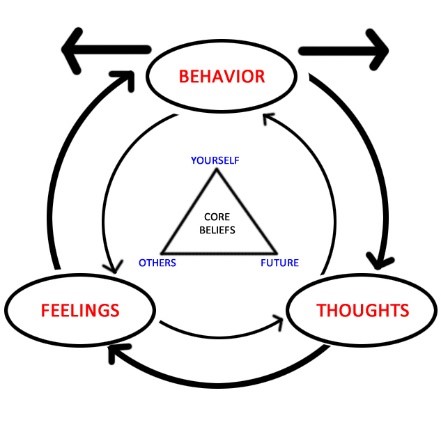
by | Jun 23, 2020 | Uncategorized
It has been a roller coaster of a year so far, but the summer has finally arrived, and that’s definitely something to celebrate!
Life, as we know it, has been slowly inching back to something resembling normalcy – many businesses are starting to open up again, some sporting events are resuming, as well as a large number of the outdoor activities are ready to start for the season. With that, many people end up forgoing their healthy diets and veer towards summer indulgences which include junk food, delicious sugary treats, and more than likely, higher alcohol consumption. Of course, summer is meant for BBQs, campouts and late-night patio hangouts with your best friends and family.
It’s understandable to want to savour the sunshine and soak up every ounce of the summer, but as you do this, it’s also important to stay healthy and do what you can to help your body – especially your liver – during this time. These are some of the ways you can take care of yourself, while you’re enjoying all the fun events in which the next few months have in store:
Limit your alcohol consumption – alcohol can be quite taxing on the liver, especially when consumed in large amounts. Between every drink, try to add a full 8oz glass or water in between, so that you’re giving your system some time to recover. Adding lemon to water, can also help the liver detoxification process a little bit more as well. I’ve also added some options for non-alcoholic summer drinks on our website, which are wonderful options for those who want to be a part of these social gatherings, but who also want to limit or avoid alcohol all together.
Adding B-vitamins can help in so many ways. When alcohol breaks down, it forms compounds called aldehydes. Aldehyde build-up in high amounts in the bloodstream which can be toxic to the liver in excess. When it builds up too much, it can cause many of the typical hangover symptoms that most already know. B-vitamins can greatly reduce aldehyde build up, and is critical in helping quell hangover symptoms. They are also wonderful in providing energy, balancing mood and anxiety, and improving sleep.
Gout: With BBQs and beer, gout is most predominantly experienced in the summer months because of this. As well as dehydration which is also very common in the summer, due to the heat, it is also something that can flare up tremendously if you’re not careful. To avoid this, continue to hydrate, and limit the amount of red meat you consume, as well as heavy alcohol drinks such as beer and lagers. Try to eat more cherries, and tart cherry juice whenever possible, as this can help with gout as well.
Liver supportive treatments offered:
Love Your Liver Detox IV – This is a wonderful mix of hydration and liver supportive vitamins and such as B-vitamins, amino acids, trace minerals, and a liver detoxifier called glutathione. Glutathione is also known as the ‘mother of all antioxidants’ – and it truly is. It is vital for detoxifying (turning over toxic agents into non-toxic forms) in the body.
Injections – Love Your Liver glutathione injection: Smaller amount of glutathione, done as an injection, to give your body a constant boost of this absolutely vital antioxidant. B-vitamin injections are also available, and very well received. High dose B-complexes, as well as adrenal/cortisol (stress relieving) injections are also wonderful ways to replenish.
Diet and lifestyle – eating clean foods, and foods that have a low inflammatory response, is another way to help keep the body functioning adequately, and will create less burden to the liver. There are also a lot of recipes and simple substitutions in which you can make, so that you can still have delicious and clean foods…that you’ll actually enjoy!
Check out our website for additional information about treatment offerings and promotions such as IV/injection vitamin therapies, detoxification support, acupuncture and many others! As well, you can check out previous articles, blogs, videos, podcasts, recipes and more, to help you feeling at your best! Have a happy and healthy summer!

by | Jun 23, 2020 | Uncategorized
A common question that many ponder is “what would be better for me, working with a Coach or a Psychologist?” And what is the difference?
As fellow practitioners at Docere Wellness Centre, we thought we would offer you a few things to consider as you explore which practitioner to work with.
While Coaches and Psychologists may use some similar techniques or approaches, we also want to honour the unique and important differences that exist in these complementary professions.
What is Coaching?
Coaching is partnering with clients in a thought-provoking and creative process that inspires them to maximize their personal and professional potential. Coaching honours the client as the expert in their life and believes that every client is creative, resourceful and whole. Coaches partner with clients to help them move forward in a supported and truly meaningful way, all according to the client’s agenda. Coaches do not assess or develop treatment plans, but ask thought-provoking questions in support of clients living intentionally and making resonant choices.
When identifying a Coach to work with, do pay attention to credentials and training. Membership with a coaching body, for example the International Coach Federation (ICF), is not the same as holding a credential from the ICF. A certified Coach will have achieved their training via an approved and accredited body, and a credential from the ICF (I.e., ACC, PCC or MCC) signifies a Coach’s completion and pursuit of rigorous education and practice requirements that provide unquestioned legitimacy to their commitment to excellence in coaching.
What is Psychotherapy?
Psychotherapy (aka talk-therapy, counselling, psychological services) involves working with a trained mental health professional who has, at minimum, a Master’s level degree in psychology, psychiatry, social work, or related field. Services provided by licensed psychologists are regulated by the College of Alberta Psychologists, meaning that they must fulfill several academic and training requirements prior to being licensed to practice, abide by a code of ethics, and meet standards of practices set forth by the College.
Psychologists can assess, diagnose, and treat mental health problems, such as anxiety, depression, trauma, stress, and sleep-related disorders. Treatment approaches are selected using evidence-based practice. Psychologists develop a therapeutic alliance with clients by showing empathy, acceptance, and positive regard while challenging maladaptive thinking and behavioural patterns that impair functioning. Finally, the majority of health care benefit packages provide coverage for psychological/counselling services.
Readiness for Change
If you find that you are eager to get going, to process and explore, working with a Coach may be the right fit. You do not need to be crystal clear on what your goals are or what it is that you want to change, but you have a knowing that you do not want to continue as is and are ready to put in the work, to be intentional about exploring something different. You’re curious. Working with a Coach does require a degree of readiness for change – a readiness to put in the work and be intentional.You are in the drivers seat and we work co-actively together.
If you are in a place where you are finding it hard to function, get out of bed, or be engaged in the day to day, it may be a better fit to work with a Psychologist. The assessment and approach to your treatment plan is based on your individual or couple’s goals and needs in a collaborative process. Working with a Psychologist can support you in your level of readiness for change.
You are here, where is here?
Thinking about where you are in your life in this moment in time can be helpful in deciding whether working with a Coach or Psychologist is right for you. Here are some examples that may ring true for you.
Example reasons to work with a Coach include, but are not limited to:
- Feeling stuck, wanting for something to change;
- Feeling overwhelmed and looking for support to process thoughts and ideas;
- Increasing self-awareness or awareness of your impact;
- Seeking clarity about goals and purpose;
- Achieving health and wellness goals;
- Setting boundaries to achieve greater life/work balance;
- Exploring your values and using them to guide your decision making;
- Getting unstuck by experimenting with different perspectives;
- Strengthening workplace and/or personal relationships;
- Self-love and acceptance;
- Bridging the gap between where you are now and where you aspire to be;
- Living a more fulfilling life; and/or,
- Letting go of who you think you should be and embracing who you are
Example reasons you might work with a psychologist/therapist include, but are not limited to:
- Feeling overwhelmed and helpless to change some of your unhelpful thinking, behavioural, or relational patterns despite trying and getting help from family and friends;
- Feeling dissatisfied with who you are, how you are living, and your purpose in life;
- Struggling to carry out daily activities including parenting, self-care, or work tasks;
- Excessive worrying , expecting the worst, and/or feeling hopeless about the future;
- Losing pleasure or interest in activities and/or relationships;
- Past traumas interfering with current functioning in relationships across settings;
- Struggling to express yourself accurately and get your needs met in relationships; and/or,
- Seeing that your actions are harming yourself and/or others, including addictions or substance use, and wanting to turn things around.
Connection and Goodness of Fit
The relationship between practitioner and patient/client is key in order for to support you in your optimal health and fulfillment. Connection and fit is not only beneficial but necessary to create a safe environment where trust, courage, acceptance, awareness and opportunities for growth exist.
And sometimes you just “click”. Be sure to trust yourself and your intuition.
We make it easy for you to get to know us and our professions first – we offer complimentary sessions or phone consultations to help you determine fit and connection. There is no cost or obligation to continue, just an opportunity for you to explore how coaching and psychotherapy can support you in living a fulfilled life and address any questions you may have about the process
Get to know us and our areas of expertise!
The distinction between coaching and therapy is not black and white.
We hope the above gave you an idea of each profession, and provoked further thought about where you are in your life and the kind of support you are seeking.
Whether you choose to work with a Coach or Psychologist, or both, we are confident that you will enjoy a valuable experience that will honour where you are in your life. Both practitioners and professions want for you to live happy, healthy and fulfilling lives, and are ready to support you where you are at.
Book in with Susan and Amanda today!
Call 403-452-6262or book in on-line at www.docerewellness.

by | May 25, 2020 | Uncategorized
Have you ever heard of vitamin D being referred to as the ‘sunshine vitamin?’ That’s because It absolutely is! Starting first with the skin, we use UVB rays from the sun to synthesize the majority of vitamin D that we need. With the help of the liver and the kidneys, it gets converted into D3, which is the primary, and most active form of the vitamin that is used in the body.
Vitamin D3 plays many essential roles; chief among them is the regulation and balance of calcium, primarily for the formation and maintenance of healthy bones.
However, vitamin D plays a wider role outside of bone health that you may not know such as:
- Gastrointestinal health: Vitamin D can be protective in many gastrointestinal disorders especially with respect to conditions related to IBD (Irritable Bowel Disorders). Crones and Colitis, and even irritable bowel disease and celiac disease and gluten issues. Vitamin D3 is said to be protective to the lumen (or walls) of the small and large intestine and is really important not only to help treat, but also can be used as a defence for lowering susceptibility of flare-ups in the future, or in disease progression.
- Hormone and endocrine functions: Vitamin D3 can also play a major role in hormone regulation and functioning. Since vitamin D is a fat-soluble vitamin, it is also very important in the regulation of many steroid hormones. Because of this, it can play a role in helping with insulin resistance, fat metabolism, and blood sugar regulation. It can also be very helpful in benefiting issues such as weight gain, obesity, hormone imbalances, cardiovascular disease, and even some respiratory conditions as well.
- Mental Health: Vitamin D, has been known to play a crucial role in mental health, especially when coupled with other fats such as Omega 3 for example. Adequate intake, or supplementation, of vitamin D, can greatly improve symptoms of anxiety and depression especially when taken in the winter months when many people experience seasonal affective disorder (SAD) due to the lack of sunlight during these months..
- SKIN ISSUE: Many skin issues, are at least partly, due to inflammatory conditions either in the gut or somewhere else in the system. Vitamin D can play a major role to aid in inflammatory conditions, and in certain instances allergic signs and syndromes as well.
- Immunity: Vitamin D3 plays an important and vital role, in the immune system as it helps build immune factors in the bloodstream, which play a role in aiding with fighting infections. The technical term for these chemical messengers is called cytokines. These messengers are always working hard for your immune system to build the strength of these immune fighters and allows the systems in your body to function more effectively.
- Musculoskeletal: Vitamin D3, plays a major role in the movement of calcium into the bones, as well as plays a role in the function of growth hormone. Maintaining adequate vitamin D3, and calcium status (often coupled with vitamin K2) at times as well, will not only ensure healthy and strong bone formation, but it also, will be preventative to lower chances of developing, or progressing symptoms like Osteoarthritis, Rheumatoid arthritis, and many other musculoskeletal issues. This could include those such as inflammation in the joints, stress fractures, chronic pain, fibromyalgia and others.
There are also dietary sources of vitamin D as well which can be consumed as well. Foods that contain high amounts of vitamin D3 typically are fish, mushrooms, pork and beef. Many juices and milk products in Canada are also fortified with vitamin D, which means that it has manually been added to these foods, to increase vitamin D sources for those who consume them.
As well, you may often need to increase your intake of vitamin D3, with a good quality supplement or D drop. This is especially true in Canada, as we are far north of the equator and are likely not getting the proper UVB rays necessary to produce vitamin D3 to adequate levels.
So, as the sun is shining, make sure to get outside as much as possible. Typically, 20-30 minutes of direct midday sunlight each day is a great start, to help get a very healthy dose of vitamin D.
Go for a walk, ride your bike or sit outside – and soak in all that glorious sunshine vitamin! J

by | May 25, 2020 | Wellness Recipes
Blend all of the following ingredients together, pour and enjoy!
1) Chocolate Almond Butter Smoothie
Unsweetened Almond Milk
Zucchini (chopped, frozen)
Chocolate Protein Powder
Banana (frozen)
Chia Seeds
Almond Butter
Cacao Powder
Cacao Nibs (optional).
2) Choco-Peanut Butter Smoothie
· ¼ Avocado
Organic Coconut Milk
All-Natural Peanut Butter
Baby Spinach
Chocolate Protein Powder.
3) Coconut Green Tea.
·
2/3 cup
Organic Coconut Milk (full fat, refrigerated overnight)
Water
Frozen Berries
Baby Kale
Hemp Seeds
Green Tea Powder (matcha)
Protein Powder
Chia Seeds
Reference: That Clean Life.

by | May 4, 2020 | Uncategorized
Hello! I’d like to introduce myself as Docere’s new provisional psychologist. As part of my intro blog, I thought it’d be useful to share my approach when working with psychotherapy clients. I’m very excited to serve Docere’s clients who may be struggling with common issues like anxiety, depression, sleep problems, stress, self-esteem, grief, loss, and relationship dynamics. My training includes evidence-based practice with an emphasis on building the therapeutic alliance.
Bio-psycho-social-spiritual

I am keenly aware that each of you is unique regarding your current and historical
- physical health, physiology, genetics (biology)
- beliefs, thoughts, emotions, behaviours (psychology)
- upbringing, culture, family and relationship dynamics (social)
- meaning, connection, awareness (spiritual)
…and will meet you where you’re at.
Humanistic & strength-based
Along with uniqueness, I believe in people’s inherent goodness, subjective experience, and motivation towards fulfillment. I emphasize the importance of accessing your strengths and resources to help you fulfill your potential and growth-needs, rather than focusing on dysfunctions and pathology. How refreshing, eh?
Cognitive behavioural therapy (CBT) & rational emotive behavioural therapy (REBT)
Speaking of subjective experience, our beliefs tend to influence our thoughts, behaviours, and emotions; vice versa (bi-directional relationship), which is the theory behind the widely-supported CBT model.
Using CBT and REBT techniques, I work with you to acknowledge and address some core beliefs, thinking, and behavioural patterns that may be keeping you feeling ‘emotionally stuck’ and from fulfilling your needs.






